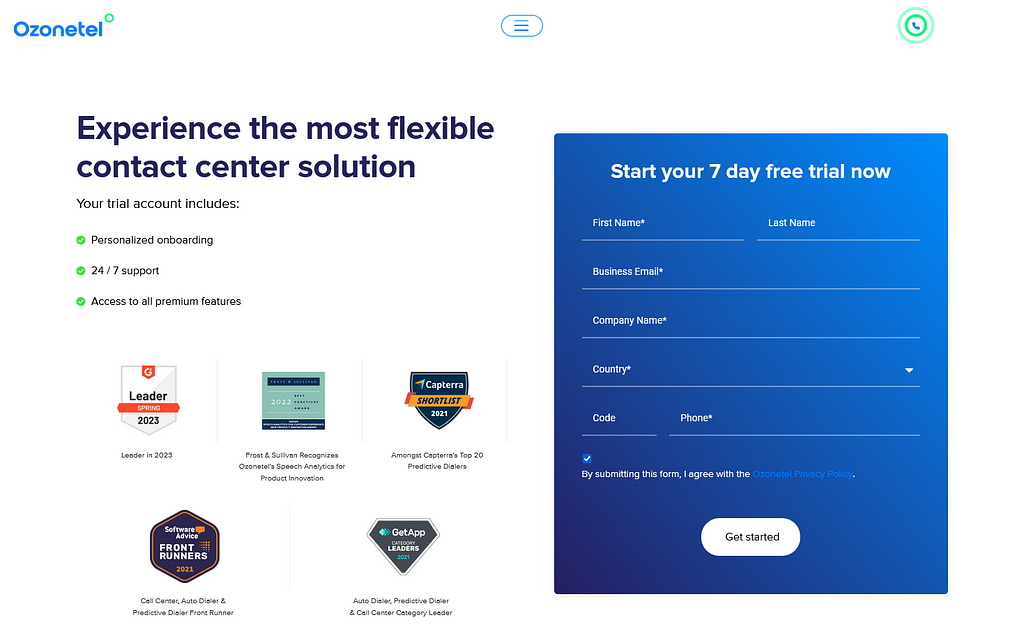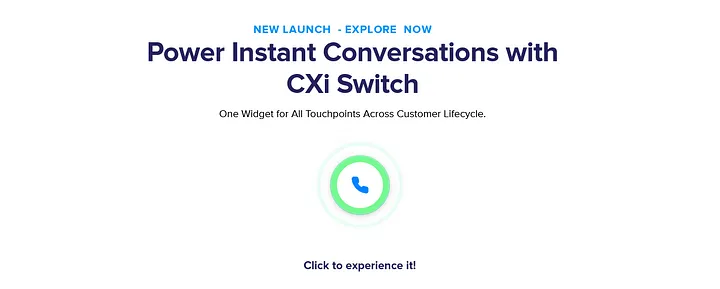- Resources
- What Are The Applications Of Call Center CTI?
What Are The Applications Of Call Center CTI?

Cole calls his favourite restaurant. Almost immediately, Nia answers and greets him by name. Cole isn’t surprised, since he is used to Nia taking his order. He orders his usual. She remembers his gluten intolerance and pencils in special orders for the chef. He takes her recommendation for desert, and within the next few seconds, she reconfirms the delivery address and closes the call. This hyper personalization is a key reason why Cole remains a loyal customer.
CTI applications are the secret sauce that powers multiple examples of stellar customer support. CTI applications can improve sales, support and agent efficiency.
What is CTI?
CTI or Computer Telephone Integration, as the name suggests, simply means integrating your phone system with your computer. Also known as call telephony, it gives you a wide variety of business benefits including being able to recognize callers, provide IVR, match caller to their customer records, as well as track call recording, missed calls and agent performance on each call.
4 BUSINESS APPLICATIONS OF CTI
Are you able to track data after a busy day of receiving calls and answering them? Can you analyze this data at the touch of a button? Does the CRM system you currently use give you an edge over your competitor? Does it help improve your response time? And most importantly, does it help you resolve issues faster?
CTI or Call Telephony integrations can help you achieve all this and more. Here are 6 powerful business applications of Computer Telephone Integrations in your call center:
APPLICATION 1: RECOGNISE CALLERS & ROUTE CALLS BETTER
CTI makes it possible to draw information from your internal database/CRM or Ticketing system to recognize callers from their phone numbers.
ACD or Automated Call Distribution is used to transfer inbound calls to the right agent. Calls can be routed based on a variety of factors including time-of-day, agent’s skills, or campaign.
VIP Routing is another option. many of our clients use VIP routing to prioritize customers based on past average order value. When the customer calls, the IVR uses customer data within the CRM software to “decide” whom the call will be routed to , based on pre-defined instructions.
Sticky Agents. CTI makes it possible to know who a caller spoke to last, and connect them to the same agent each time. This builds familiarity, trust and superior customer experience just like in the case of Cole and Nia in the hypothetical scenario we discussed above.
APPLICATION 2: SCREENPOP INTEGRATIONS
With CTI, your telephone doesn’t just recognize the caller, it draws information from your internal database/CRM or ticketing software. The information then displays as a screenpop on the agents dashboard.
The agent uses this information to resolve the caller’s query immediately, without having to fumble through multiple systems.
A lot of time is saved as the information is ready with the system.
The customer also feels welcome and acknowledged. An important step in trust is formed.
APPLICATION 3: POWER DIALLERS
CTI benefits for your outbound calling too. According to topoblog, when cold calling, it takes 18 or more dials to connect to a prospect. Use Power dialers to save precious time for your agents. You can use preview, progressive or predictive dialers to auto dial outbound numbers. (Contact us here to know which dialer works best for you)
APPLICATION 4: Reports & Analytics
CTI makes it possible to get call recordings and detailed call analytics like number of calls made, number of incoming calls, number of missed calls and other data.
Read our articles on how how call telephony integrations can really revolutionize your sales or support process here. Or contact us to get yourself a call telephony solution that works best for your business.







